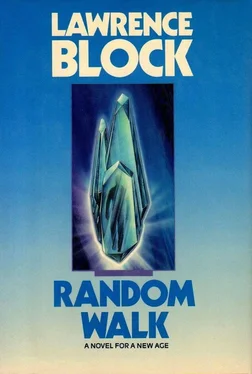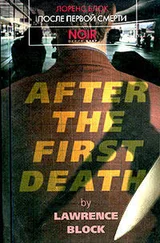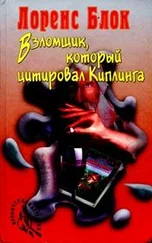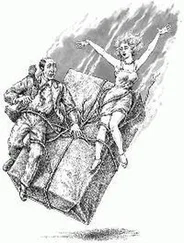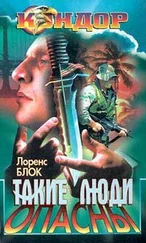Slowly, as silently as he came, he stole out of the bedroom and back out of the house the way he’d entered it. He stayed in shadows as he glided down the driveway and around the corner. Every house on the block was still and dark. He got into his car and drove for a few hundred yards before switching on the headlights. Then he drove out of the neighborhood, negotiating the maze of twisting streets like an old hand, and on out of Archer County altogether.
In five or six hours, if nothing woke him before then, J. T. Flanders would wake up next to his dead wife, with one of their knives in her chest and no explanation of how it got there. He might even grab the knife’s handle without thinking what he was doing, obligingly getting his prints on it. Even if he didn’t, he’d probably get to tell his story over and over, to a lot of people. Whether or not he ever served a day for her murder, or even stood trial, it seemed unlikely in the extreme that the Archer County Sheriff’s Office would look elsewhere for her killer.
He liked the thought of Flanders going to jail for Missy’s death. The man had kept her on a short leash, probably knowing he couldn’t hold her, and now he’d lost her and the leash was fastening itself around his own neck. Mark hated Flanders, he was just beginning to realize that now. He hadn’t hated Missy, but he’d hated the men in her life, the men who had her when he didn’t.
Like George. In the same five or six hours George would be getting up, singing in the shower; it was Friday, and he’d be looking forward to lunch. Planning the menu, say.
Forget about lunch, George. Pack a sandwich and eat at your desk. Or be a good boy, run on home to Gwen.
A thought came to him. He drove around, exploring it, studying it like the numbers on a real estate deal. The more he looked at it, the more he found himself smiling.
He drove back to the motel where he’d caught a few hours’ sleep earlier. He hadn’t planned to return but he still had the key and it was safer than registering anew somewhere else. He parked in front of his unit and got out of his clothes and into bed. He didn’t sleep, he couldn’t possibly have slept, but he rested.
At eight-thirty he was parked three doors down from George Kingland’s house. He was gazing steadily at the house ten minutes later when the garage door opened at the touch of a button and George backed his Cadillac out of the driveway. The garage door swung shut after him.
Mark waited five minutes. Then he pulled the Lincoln into George’s driveway, checked his tie in the mirror, and went up to the front door to ring the bell.
When she opened the door he said, “Hi, Gwen. Mark Adlon. It’s great to see you. Is George ready?”
“Why, Mark,” she said. “We thought you’d left town. You just missed him, he left here not five minutes ago.”
“I was supposed to meet him here,” he said. “He said a quarter to nine.” He looked at his watch. “A quarter to nine. Unless this thing’s on strike.”
“It must have slipped his mind,” she said. “Well, come in, Mark. We’ll give him a few minutes to get downtown and then call him, that’s if he doesn’t remember on his own and drive back for you.”
She was a fine-looking woman, tall, aristocratic in her bearing. Her hair was dark brown frosted with silver, her skin just a little crepey around the eyes.
“I swear George never said a word,” she said. “He said something about having you over for dinner, and then he called to say you’d left town.”
“I did but I came back. I called him yesterday and we made a date to meet here. He was going to take me out to look at some new town-houses, but I guess he forgot.”
“It’s not like him,” she said fondly, “but I guess it can happen to anyone. And he’s had things on his mind lately. Well, Mark, you’re looking well, I must say. Would you like some coffee?”
“Love some.”
Sitting across the table from her, sipping at his coffee, he prepared to violate one of his most basic rules. He had always hunted strangers, had always shied away from women he knew, women with whom he had any connection whatsoever. That principle should have kept him from touching Missy Flanders, George’s secretary, but that had been a tenuous connection and the desire had anyway been irresistible.
But Gwen Kingland was a woman he knew socially, the wife of a business acquaintance. He was sitting with her, he was making conversation with her, and in a moment he was going to kill her.
But did he have any choice? None, as far as he could see. Now that she had seen him, his alibi depended upon her death. If he left her alive, he would inevitably become a prime suspect in Missy Flanders’s murder. He shouldn’t have come to Gwen’s house, that had probably been a mistake, but it would be a greater mistake to leave without finishing her off.
And she was attractive, no question about it. Older than he usually chose, but not too old. And, looking at her and knowing he was going to do her, he felt his excitement mounting.
“Something I want to show you,” he said, getting up from the table. Then, standing alongside her, he swung his forearm like a club against the side of her neck. She reeled and he struck her a second time, and the second blow rendered her unconscious.
She was naked under the robe. He stretched her out on the living room carpet with the robe open and lay on top of her. When she came to he had one hand under her chin and the other gripping her frosted hair.
He talked to her. He told her about George and Missy, and he told her what he had done to Missy. He felt her struggling beneath him, and he listened as she begged, and he let it go on until he couldn’t stand it anymore. And then his hands moved and her neck snapped and the life slipped out of her.
When he left she was lying at the bottom of the cellar stairs. One of her slippers was on a top step, as if she’d caught it on something, lost her balance, and fell.
George, he thought, driving out of town, George, you just got nobody left, you poor bastard. You better get used to jerking off.
#85.
When they crossed into Montana on July 2, they crossed the Continental Divide as well. A metal sign at the roadside informed them of this fact, and Dingo told Jordan and two of the jack-Mormon kids how he and a buddy had stood back to back at the Continental Divide in Colorado once, the two of them peeing, one into the Pacific, the other into the Atlantic. The two brothers ran off to try it, while Jordan told Dingo that the urine would never reach the ocean, that it would soak into the ground and dry up.
“Well, it’s the idea of it,” Dingo said.
Jody had been walking with Mame and Bev. Now he moved ahead and caught up with Guthrie. “Hey, hoss,” he said. “Halfway there.”
“Halfway where?”
“Halfway to wherever we’re going. Remember when we first met up and I had the idea you were going to Chicago? Halfway to the end of the line, wherever that turns out to be.”
“How do you figure that?”
“The Continental Divide. That was the Continental Divide, case you didn’t notice.”
“I know.”
“I never been across it before. Every time I put a foot down I’m further east than I ever been in my whole life.”
“Well, you’re a long ways short of halfway across the country,”
Guthrie told him. “The Continental Divide just halves the country in terms of the watershed. It’s way over in the west. If you wanted to draw a line down the middle of the country, it would run pretty close to the border of Minneapolis and the Dakotas. If you wanted a natural line, well, the Mississippi comes reasonably close. Where we are now, we’ve covered maybe a fifth of the distance across the country.”
Читать дальше
